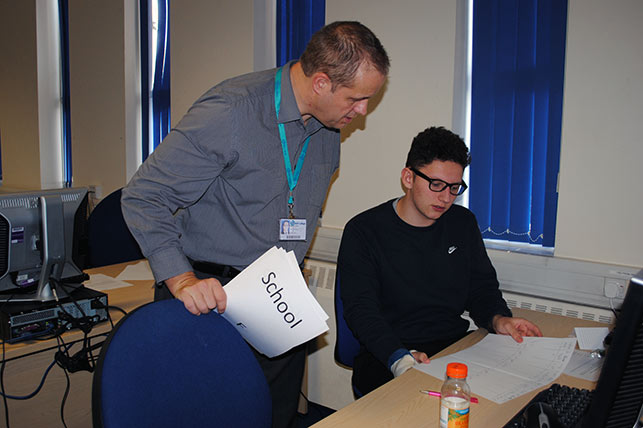Students at City of Bath College are helping to shape future policies against cyberbullying by collating questionnaire results from thousands of school children.

More than 30 Level 3 IT students have been asked to collate the responses to questions in the biggest survey into cyberbullying ever conducted among school children in Bath and North East Somerset.
Students have sifted through the responses of about 5,000 children aged 11 to 16 from seven schools across the area.
The questions focus on whether young people have ever been cyber-bullied, if they have cyberbullied anyone and if parents/carers monitor their internet usage.
The police and council will be given the research findings to help them gain a better understanding of the growing problem of cyberbullying and come up with new ways to prevent it.
The initial findings of the questionnaire were discussed “with lots of interest” at the British Educational Research Association (BERA) conference at the University of Sussex in September.
The research has been funded by Somerset Crimebeat – an initiative which aims to give young people the opportunity to combat crime and the causes of crime.
Simon Selby, who co-ordinates Somerset Crimebeat, said he was extremely grateful the College had committed to the project.
He said: “The questionnaire is all about young people so I wanted the analysis to be spearheaded by young people.
“The IT students have done a great job. It’s been a complex and time-consuming task but they’ve been like a huge human computer methodically analysing all the responses to the questions.
“This is a really influential exercise for the students; you can’t get better learning than from something real.”
Mr Selby, who is also a Student Mentor at City of Bath College, said cyberbullying was more widespread than most people realised as it can happen whenever a young person looks at their phone or goes online.
He said: “There’s not been any research carried out in such depth before and agencies such as the police and local government are chomping at the bit to get their hands on the findings.
“This research has the power to change policies and help direct the focus of preventative action.”
As part of Anti-Bullying Week, each IT student had to tally up the responses from a couple of questions in the 42-question survey. The students also had to break down the data for males and females and for different ages.
Student Joe Oswin, 17, said he was pleased to have been part of the “real life work experience” and would proudly tell others about his involvement.
He said: “It felt good to know we were helping out the community. What we did could make a real difference to people’s lives in the future.”
IT lecturer Lyall Clarey said it had been good work experience for students as they needed an understanding of data to work in all IT fields.
He said: “This was a great experience for students as it showed them the time, hard work and accuracy crucial to a project of this size.
“The students are used to dealing with data. But this got them looking at the very early stages of data analysis so they gained experience of dealing with raw data and learning how to build on it.
“It also showed the students how to produce questionnaires, what types of questions can be asked and also prompted discussions about the important issue of cyberbullying.
“We will continue to use this experience by discussing how to interpret data and we will have a go at putting the data into graphs ourselves.”



